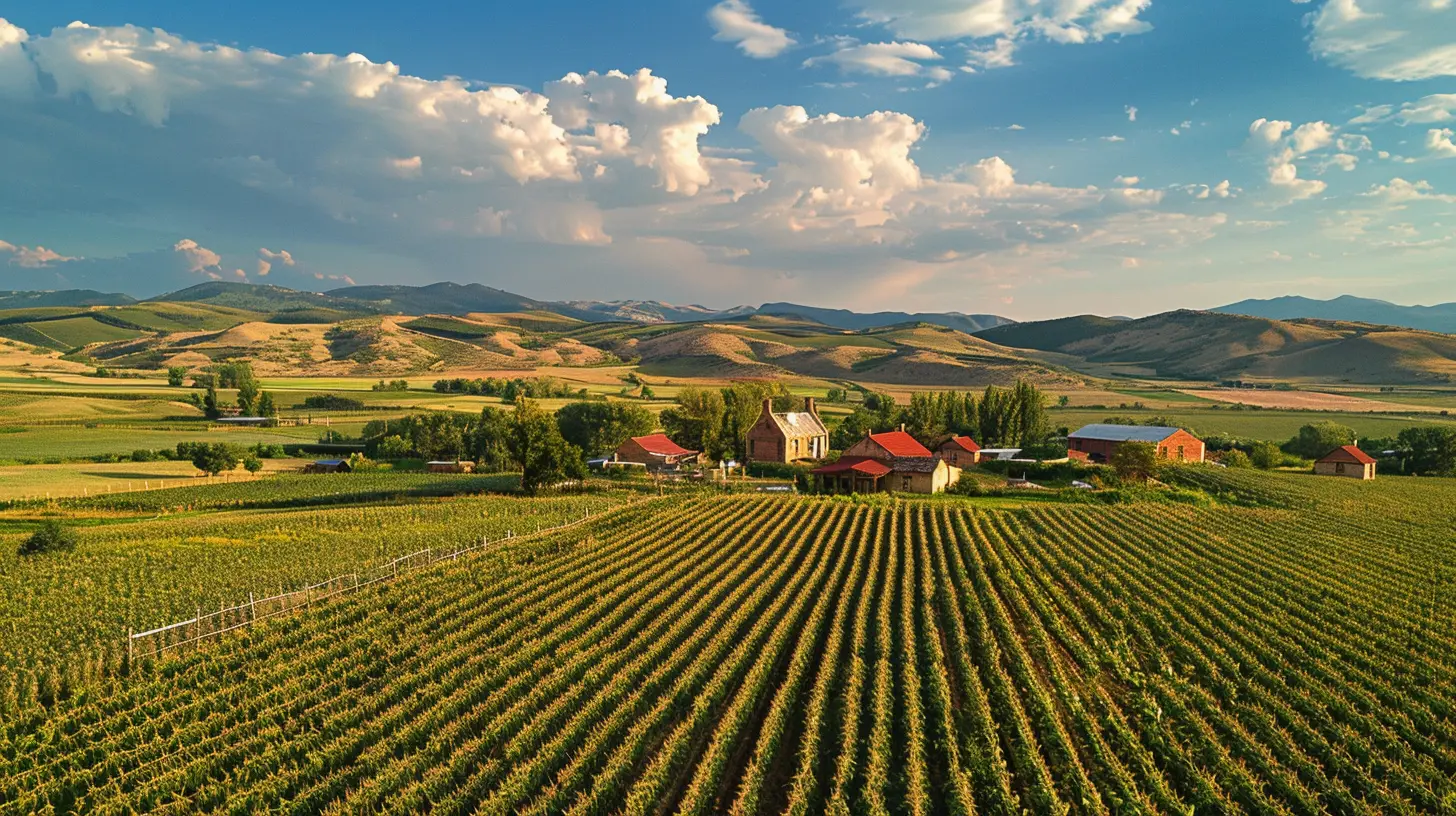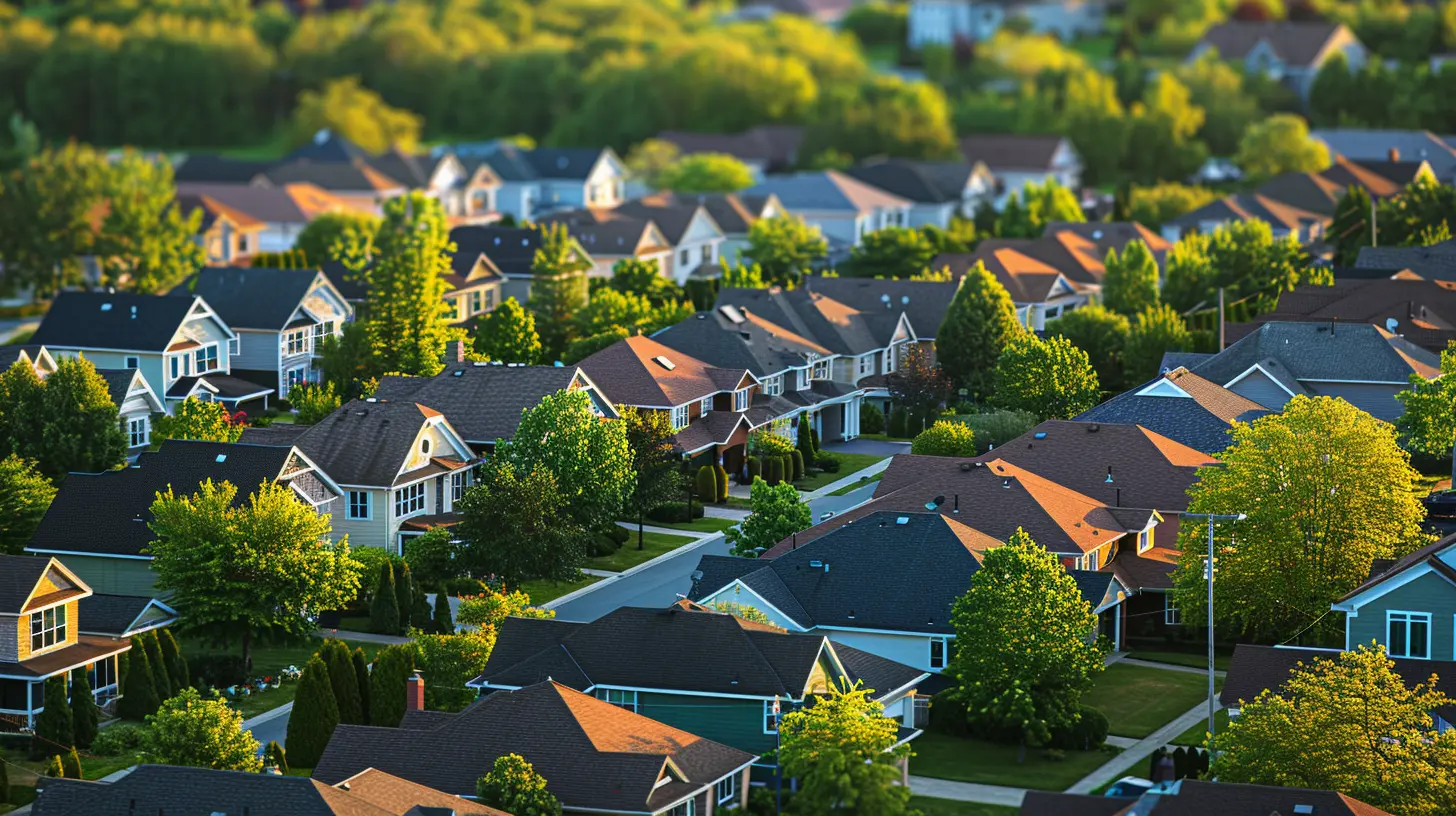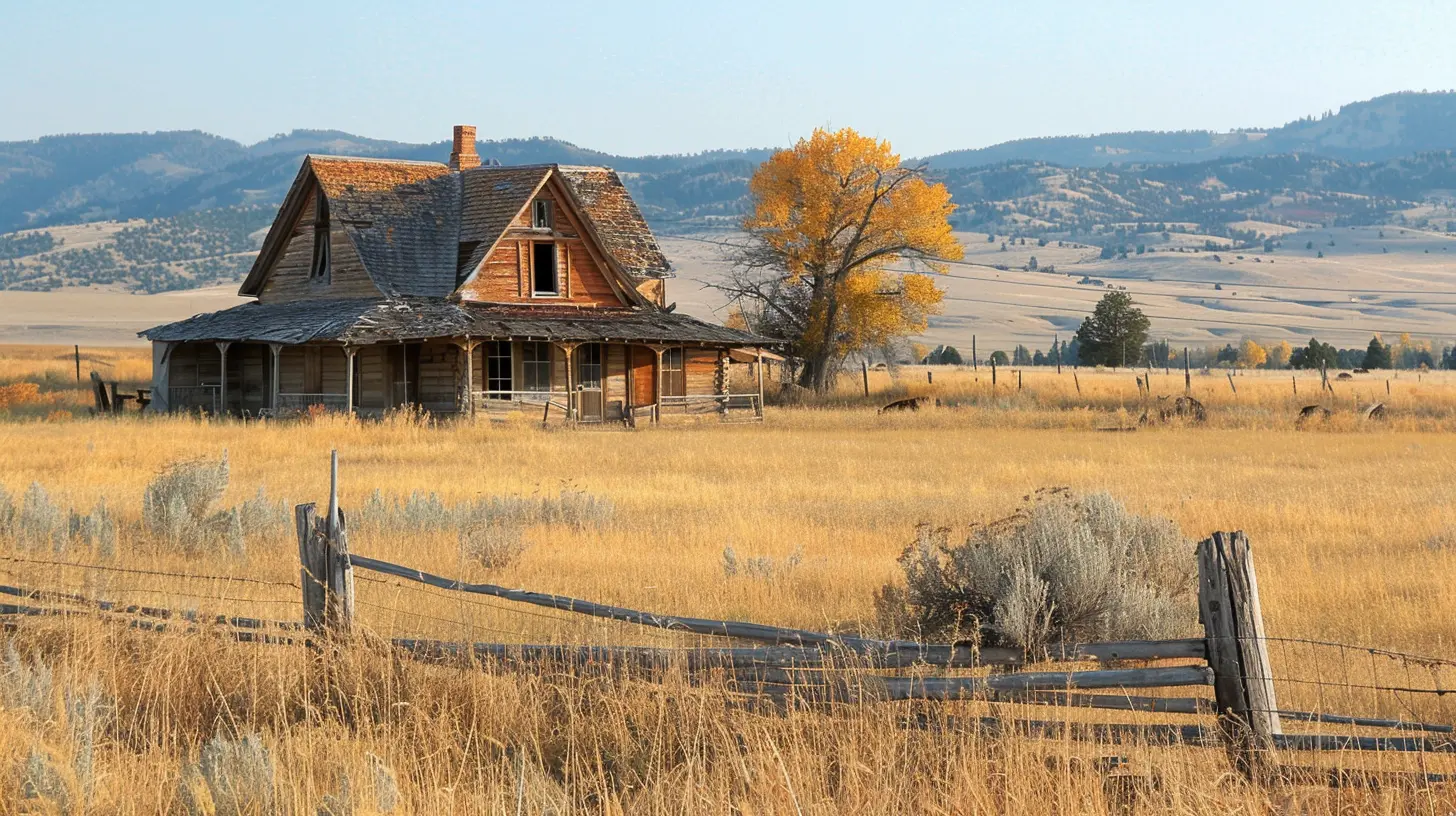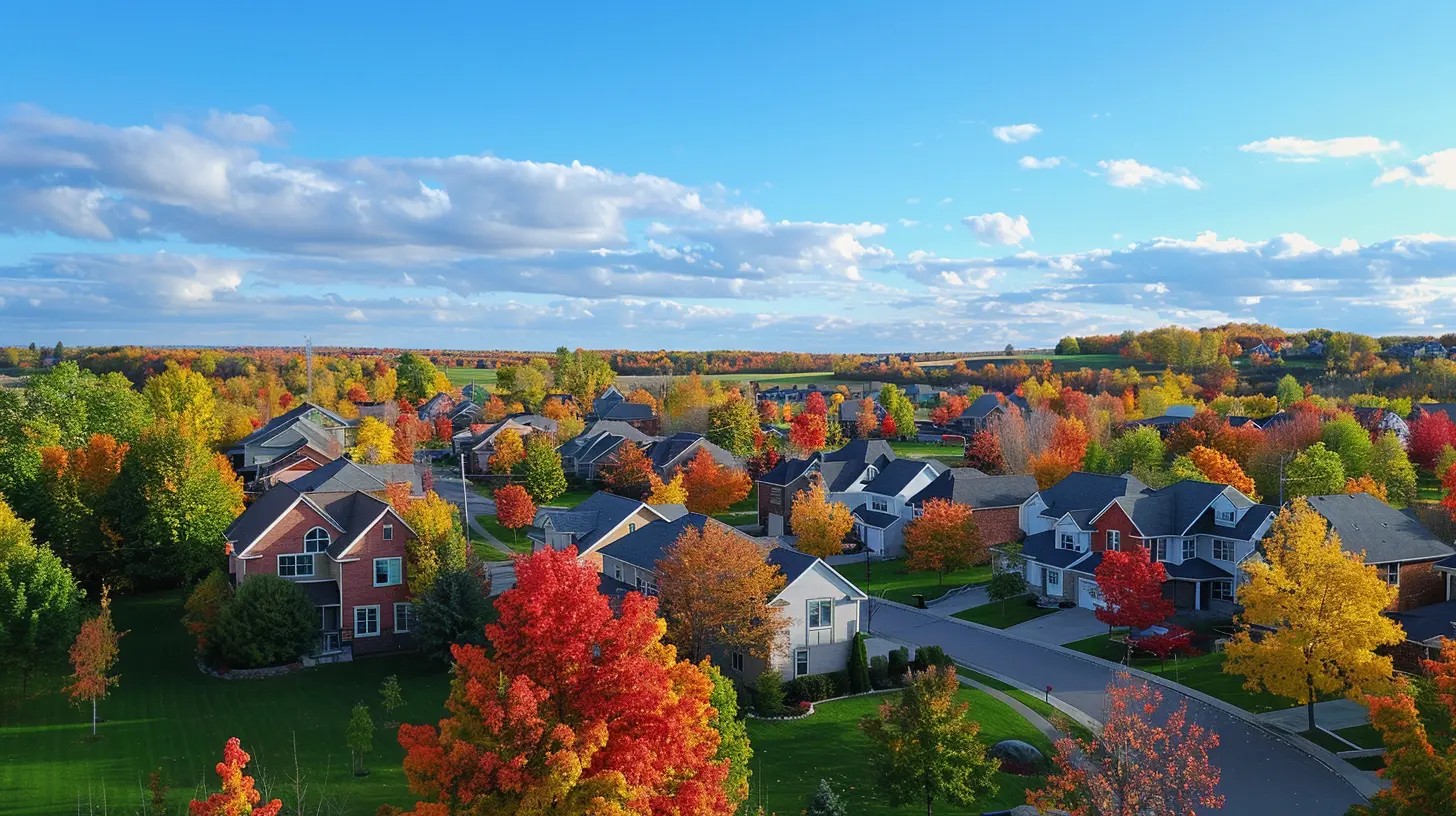Rural Zoning Regulations: What They Mean for Landowners
12 June 2025
Buying land in the countryside seems like a dream—vast open spaces, fresh air, and no nosy neighbors telling you what to do. But what if I told you that even in the most rural areas, there are zoning regulations dictating what you can and cannot do with your own land? Yep, it’s true.
Rural zoning rules might not be as strict as those in the city, but they still exist, and ignoring them could land you in hot water. So, what exactly do these regulations mean for landowners? Let’s unravel this mystery together.

What Are Rural Zoning Regulations?
In simple terms, rural zoning regulations dictate how land in non-urban areas can be used. Think of them as the rulebook for property owners, set by local governments to maintain order, protect natural resources, and ensure responsible land development.These regulations cover everything from what types of buildings can be constructed, how land can be subdivided, and even whether you can have livestock roaming freely on your property. They’re not just bureaucratic red tape—they influence the value, usability, and future possibilities of your land.

Why Do Rural Areas Have Zoning Laws?
Most people assume zoning laws are a city thing. After all, urban areas are tightly packed and need regulations to prevent chaos. But rural zoning serves its own purpose.Ever wonder why some country roads remain scenic while others turn into cluttered commercial strips? That’s zoning at work. It helps prevent haphazard development, protects farmland, and ensures resources like water and wildlife habitats stay intact.
Without zoning, you could find your peaceful homestead suddenly surrounded by industrial sites, landfills, or noisy commercial developments. It’s all about balance—ensuring landowners have freedom while also maintaining a certain level of order.

Types of Rural Zoning Classifications
Rural zoning isn’t one-size-fits-all. Different areas have different classifications, each with its own set of rules. Here are the most common ones you’ll encounter:1. Agricultural Zoning
This type of zoning is meant to preserve farmland and agricultural activities. If your property falls under this category, you’ll likely be restricted from using it for commercial or industrial purposes. Some areas even have limits on how many structures you can build or what kind of livestock you’re allowed to raise.2. Residential Zoning
Yes, rural areas have residential zones too! These are typically for homes and small-scale developments. Want to run a business or start a farm? You might need special permits or zoning adjustments.3. Commercial Zoning
If you dream of opening a bed & breakfast, a charming country store, or a winery, your land might need to be zoned for commercial use. Be warned—getting approval for commercial zoning in a rural area isn’t always easy.4. Industrial Zoning
Factories, warehouses, and other large-scale operations require industrial zoning. This ensures potentially disruptive businesses don’t end up in the middle of quiet residential or agricultural areas.5. Conservation Zoning
Some land is zoned to protect natural resources, meaning development is heavily restricted. If your property falls under this category, don’t expect to build a shopping center—or even a large home—without jumping through some serious legal hoops.
How Rural Zoning Affects Landowners
So, what does all of this mean for you as a landowner? Here’s where things get interesting.1. Property Use Restrictions
Thinking of building a guesthouse for family visitors? Or maybe setting up a roadside produce stand? Zoning laws might have a say in that. Before making any big plans, check the zoning regulations for your property to avoid costly mistakes.2. Permitting and Approvals
Want to build a barn, raise livestock, or set up an RV park? There may be permits involved. Some rural areas require special approval for structures beyond a simple home. Failing to get the proper permits could result in hefty fines—or worse, being forced to tear something down.3. Impact on Property Value
Zoning can directly influence your land’s value. A property zoned strictly for conservation may be worth less than one that allows mixed-use development. On the flip side, land zoned for commercial use may fetch a higher price in the right market.4. Subdividing Your Land
Think you can split up your 20-acre property and sell off smaller parcels? Not so fast. Some rural zoning laws have minimum lot sizes, preventing landowners from breaking up their property too much.5. Running a Business from Your Property
Rural living doesn’t mean you can automatically run a business from your home—especially if it involves excessive noise, traffic, or commercial activity. Some areas require business permits or special zoning exemptions.How to Navigate Rural Zoning Laws
Understanding rural zoning regulations doesn’t have to be a nightmare. Here are some tips to ensure you stay on the right side of the law:1. Research Before You Buy
If you're eyeing a piece of land, don’t just assume you can do whatever you want with it. A quick check with the local zoning office can save you from buying land that doesn’t align with your vision.2. Apply for Rezoning or Variances
Sometimes, zoning laws don’t match your needs. If that’s the case, you can apply for a rezoning request or a variance. Just know that the process can take time and isn’t always guaranteed.3. Work with a Zoning Expert
If zoning regulations leave your head spinning, consider hiring a land-use attorney or zoning consultant. They can help you navigate the rules and avoid legal headaches.4. Stay Updated on Local Laws
Zoning laws change, and what’s allowed today might not be allowed tomorrow. Stay informed about local regulations, especially if you plan on making major changes to your property.
The Hidden Loopholes in Rural Zoning
Here’s where things get interesting—there are often loopholes in zoning laws that savvy landowners can use to their advantage.For example, some areas offer "non-conforming use" allowances. If your property has been used in a certain way for years before new zoning laws were enacted, you might be grandfathered in.
Another trick? Special-use permits. These allow for exceptions in zoning laws, such as running a small business from home in a primarily residential area.
And let’s not forget about agricultural exemptions. Many areas have tax breaks or rule relaxations for properties that fall under agricultural use. If you can qualify, you might get more flexibility with your land.
Final Thoughts
Rural zoning regulations may not be the wild west of land ownership, but they definitely shape what you can and can’t do with your property. Whether you want to build, farm, run a business, or just enjoy your land stress-free, knowing the rules is key.The countryside offers freedom—but even that freedom has its limits. So before you start laying down foundations, planting crops, or setting up your dream homestead, make sure you understand the zoning laws that govern your little slice of paradise.
all images in this post were generated using AI tools
Category:
Zoning RegulationsAuthor:

Travis Lozano
Discussion
rate this article
3 comments
Alexa McRae
Great insights on rural zoning regulations! Understanding these rules empowers landowners to make informed decisions and unlock the true potential of their properties. Embrace the opportunities that come with knowledge, and remember: every challenge is a chance for growth. Your vision for the land can lead to incredible possibilities!
June 20, 2025 at 3:20 AM

Travis Lozano
Thank you for your thoughtful comment! I'm glad you found the insights valuable. Knowledge truly is key to unlocking the potential of our land.
Lara Black
Rural zoning regulations play a crucial role in land use planning, balancing development needs with environmental preservation, ultimately benefiting both landowners and communities.
June 15, 2025 at 11:56 AM

Travis Lozano
Thank you for highlighting the importance of rural zoning regulations! They indeed play a vital role in ensuring sustainable land use that supports both development and environmental conservation.
Zarev Kearns
Rural zoning regulations reflect our societal values and priorities, shaping not only land use but also the connection between community and environment. Understanding these nuances is essential for landowners seeking to navigate opportunities and responsibilities.
June 14, 2025 at 3:25 AM

Travis Lozano
Thank you for your insightful comment! Understanding the interplay of zoning regulations, community values, and environmental impact is indeed crucial for landowners in making informed decisions.



